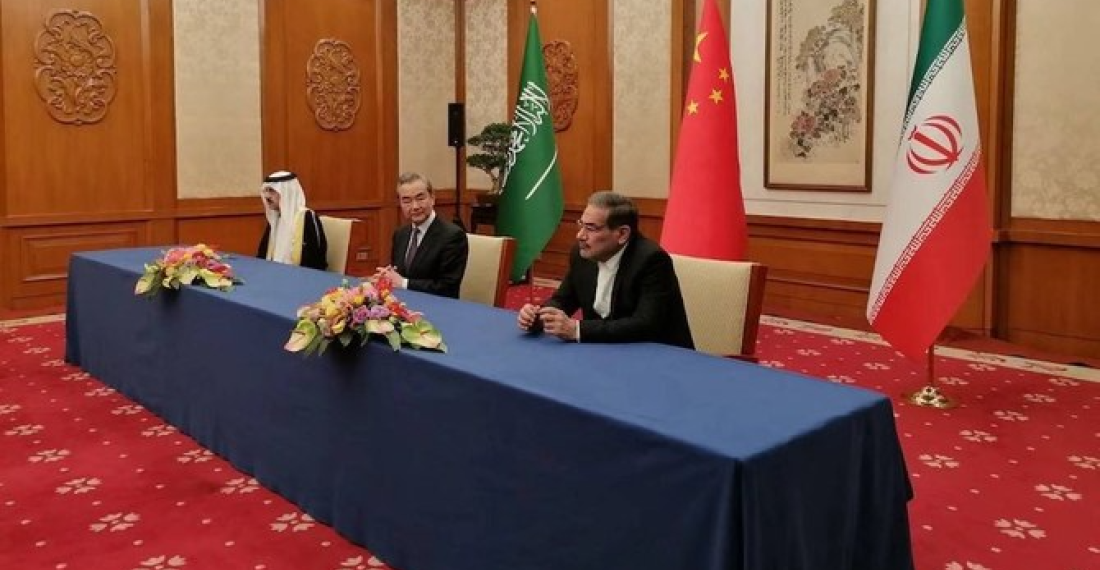Following a meeting in Beijing, on Friday (10 March) Saudi Arabia and Iran have agreed to reestablish diplomatic relations and reopen their embassies within two months following years of tensions between the two countries.
A joint statement released by the Saudi state news agency SPA read: "In response to the noble initiative of His Excellency President Xi Jinping, President of the People’s Republic of China, of China’s support for developing good neighborly relations between the Kingdom of Saudi Arabia and the Islamic Republic of Iran...the three countries announce that an agreement has been reached between the Kingdom of Saudi Arabia and the Islamic Republic of Iran."
"That includes an agreement to resume diplomatic relations between them and re-open their embassies and missions within a period not exceeding two months, and the agreement includes their affirmation of the respect for the sovereignty of states and the non-interference in internal affairs of states," the statement said.
Iranian state television said, "after implementing the decision, the foreign ministers of both nations will meet to prepare for the exchange of ambassadors." The state-run IRNA news agency quoted Ali Shamkhani, the secretary of Iran’s Supreme National Security Council, as saying that the talks were "clear, transparent, comprehensive and constructive."
He was also quoted as saying "removing misunderstandings and the future-oriented views in relations between Tehran and Riyadh will definitely lead to improving regional stability and security, as well as increasing cooperation among Persian Gulf nations and the world of Islam for managing current challenges."
Washington welcomes "any efforts to help end the war in Yemen and de-escalate tensions in the Middle East region"
Responding to the news, the US said it was aware of reports of the two nations resuming diplomatic relations, but referred further details to Saudi Arabia, a White House National Security Council spokesperson said on Friday.
"Generally speaking, we welcome any efforts to help end the war in Yemen and de-escalate tensions in the Middle East region," they said. "De-escalation and diplomacy together with deterrence are key pillars of the policy President Biden outlined during his visit to the region last year," they added.
The Beijing statement also noted Saudi and Iranian appreciation and gratitude to Iraq and Oman for hosting rounds of dialogue between the sides in 2021-22, as well as to the Chinese leadership for hosting and sponsoring the talks.
There had been many years of tensions been Saudi Arabia and Iran
While the two countries have long been rivals in establishing regional dominance and tensions brewed for years, Saudi Arabia broke off ties with Iran in 2016 after protesters stormed Saudi diplomatic posts and set fire to the Saudi embassy in Tehran. Days earlier, Saudi Arabia had executed the prominent Shiite cleric Nimr al-Nimr.
Since then tensions have continued to exist over a number of issues, including over the US withdrawal from the Iran nuclear deal in 2018, and over the ongoing war in Yemen.







